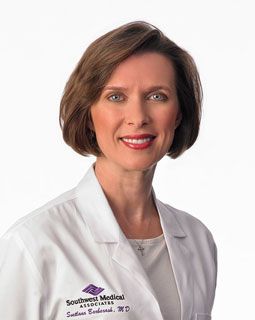- Center on Health Equity & Access
- Clinical
- Health Care Cost
- Health Care Delivery
- Insurance
- Policy
- Technology
- Value-Based Care
Provider Shortages in Nevada Leave Gaps in Cardiovascular Care: Svetlana Barbarash, MD
Svetlana Barbarash, MD, outlines the lack of cardiologists and transplant services in Las Vegas and the policy changes needed to close gender gaps in care.
Nevada’s rapidly growing patient population is straining cardiovascular care capacity, leaving many patients without timely access to arrhythmia screening and specialty services, according to Svetlana Barbarash, MD, chief of cardiology and noninvasive cardiologist at Southwest Medical.
In an interview with The American Journal of Managed Care® (AJMC®), Barbarash described how limited provider availability, delayed diagnostic opportunities, and the absence of a heart transplant program create barriers in Las Vegas that blur traditional urban-rural distinctions. She also emphasized the urgent need for sex-specific clinical trial enrollment, equitable access to advanced therapies, and workforce expansion to reduce sex-based disparities in arrhythmia care.
This transcript has been lightly edited for clarity and conciseness.
AJMC: What are the main barriers preventing equal access to arrhythmia screening and management for women in rural vs urban settings?
Svetlana Barbarash, MD | Image credit: Southwest Medical

Barbarash: Specifically talking about our population here in Nevada, we have issues with access to providers. That's one thing that is a limitation for diagnosis. The other thing is the symptoms that the patients experience may be short-lived, so by the time they end up going to the emergency room or urgent care, the symptoms are subsided already. Maybe it takes a while for them to get into the setting where the EKG can be recorded. By that time the arrhythmia has resolved, and we'll just have to do some sort of surveillance outside of the symptomatic phase to see if we can uncover some of these arrhythmias when they don't have symptoms.
AJMC: Given Las Vegas’ position as a major city surrounded by desert, does the area face any unique issues in cardiovascular care? Do typical urban vs rural associations blur here?
Barbarash: I originally came from the metropolitan New York and New Jersey area, where we had a lot of training programs, training physicians, and training cardiologists. Here in Las Vegas, we have less cardiologists and overall providers per capita, we have fewer training programs, and we have a very rapidly growing population of patients.
Overall, the ratio of patients to physicians is not as robust as in other areas. Until recently, we had 1 medical school training doctors of osteopathic medicine. Most recently, not that long ago, we started our local medical school, UNLV—University of Nevada, Las Vegas. Now we have 2 medical schools here compared to other metropolitan areas where there are multiple medical schools, compared to New York and New Jersey, and such. With the cost of living, there's a big influx of people who want to live here [in Nevada], so that's a disadvantage.
Also, this is not related to arrhythmia care, but Las Vegas is the largest major metropolitan area that has no capability of heart transplant. That's very, very unique. So, when we have patients who need to have advanced heart failure treatment or heart transplant, we ship them out to other places such as California, Utah, and Arizona, but yes, we have a shortage here.
AJMC: Why can’t heart transplants be performed in Las Vegas?
Barbarash: There is no facility that would like to undertake that—that's a major undertaking with a major investment up front. We do have doctors who are capable of doing transplant, and we could attract surgeons, but there is really no base for it at this point. We've been kind of trying to navigate this situation that hasn't really changed in the last 20 years I've been here.
It will have to take a major interest of the hospital administrators to invest in something that would help our people have the type of care that, at this point, they can only get outside of Las Vegas. It has to be someone who would see that it is of value to give to the Las Vegas population, and I think it should go from there.
AJMC: What policy changes in research or practice are most needed to close the gender gap in arrhythmia care? How do the needs of your specific region compare with nationwide policy needs?
Barbarash: Overall, we would benefit from increasing female enrollment in clinical trials, powering studies for sex-specific analysis of outcomes, tracking and assessing sex-based disparities, supporting sex-specific education, and also ensuring equitable access to advanced therapies. With a shortage of cardiologists and electrophysiologists in Las Vegas, these policies are even more important and urgent.
